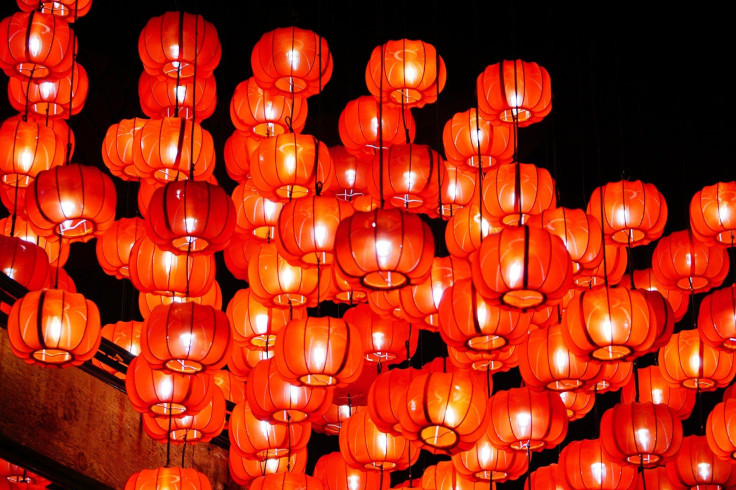Chinese New Year Traditional Food: What To Prepare For Good Luck
KEY POINTS
- Serving dumplings and spring rolls during the Chinese New Year symbolize wishing for wealth and prosperity
- Also traditionally served on the occasion is fish, which can mean surplus or abundance in Mandarin
- Long and uncut noodles symbolize long life
The celebration of the Chinese New Year, also known as Lunar New Year or Spring Festival, between Lunar New Year's Eve on Jan. 30 and the Lantern Festival on Feb. 15 will see families from all over the world spend time together around food with various special meanings.
Here are seven traditional foods eaten during China's most important festival that are supposed to bring good luck, fortune, happiness or longevity, among other things, in the year ahead.
Dumplings
Dumplings are a classic staple food for the Chinese New Year and are traditionally eaten on Lunar New Year's Eve, according to China Highlights. As dumplings are associated with wealth, it is believed that the more dumplings people eat, the more money they can make in the upcoming year.
However, not all dumplings are the same, and people reportedly try to make ones that have "a good number of pleats" or even add a white thread or copper coin inside to turn them into "lucky dumplings."
Spring Rolls
Spring rolls are another popular dish for the Chinese New Year, with its name referring to Spring Festival. There are no specific rules that need to be followed when eating spring rolls, but people usually say the phrase "a ton of gold" to wish for prosperity, according to the Foodellers.
Longevity Noodles
Longevity noodles, which are uncut and longer than normal noodles, got their name from their association with long life. Since their length and unsevered preparation represent their eater's life, it is supposedly better for them to be longer.
Glutinous Rice Cake
Glutinous rice cake can mean "getting higher year-after-year by year" in Mandarin, which can refer to a business succeeding, being promoted at work, receiving better grades or even a child's height growing, among other things.
Sweet Rice Balls
Sweet rice balls are commonly eaten during the Lantern Festival. They are often filled with red bean paste or sesame paste. The sweetness of the filling is linked to happiness, and the round shape of the balls is a symbol of family togetherness.
Fish
Another traditional food served on Chinese New Year is fish, which can mean surplus or abundance in Mandarin. Fish dishes are usually steamed, but what kind of fish is cooked depends on a person's preference.
Crucian carp, for example, symbolizes good luck for the coming year, while eating Chinese mud carp symbolizes wishing for good fortune.
As a rule, fish is usually left as the last dish on the dinner table with some leftovers because it is considered a good omen for bringing in more money for the year ahead.
Aside from that, other rules include pointing the head of the fish toward distinguished guests or elders as a sign of respect, other diners only eating the fish after the person facing the fish head eats first and making sure the fish never moves.
Fruits
All sorts of fruits are eaten during the Chinese New Year, but some are selected particularly for their round shape and "golden color," which supposedly symbolize fullness and wealth.
These include tangerines and oranges, which are believed to bring good luck and fortune due to their pronunciation and the way they are written in Mandarin. Pomelos, meanwhile, are thought to bring continuous prosperity.

© Copyright IBTimes 2024. All rights reserved.





















